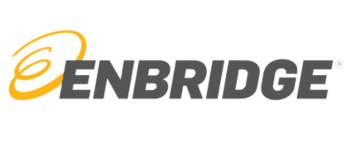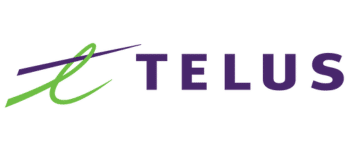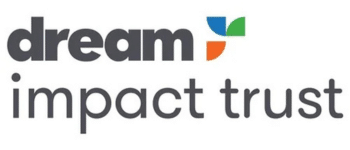Strong and Sustainable Canadian ESG Stocks
Key takeaways
ESG investing is a growing trend: With increasing awareness of environmental and social issues, companies like Royal Bank of Canada, Enbridge, and Shopify are aligning their strategies with sustainability goals, making ESG-focused stocks an attractive choice for long-term investors.
Diverse opportunities across sectors: From renewable energy projects by Enbridge to Dream Impact Trust’s affordable housing initiatives, ESG-focused stocks span multiple industries, offering investors options tailored to their priorities and risk profiles.
Performance with purpose: These companies demonstrate that strong ESG initiatives can complement financial performance, proving that sustainability and profitability can go hand in hand.
3 stocks I like better than the ones on this list.Numerous investors wish to convey a distinct message to financial advisors, large mutual funds, and the management groups of several leading firms. Merely boosting investments isn’t sufficient. These individuals are also eager to invest in Canadian shares that are making a positive impact.
Enter ESG investing. ESG- environmental, social, and (corporate) governance- is an internationally recognized set of criteria to evaluate whether a company’s conduct is up to specific standards. Potential investments are then judged based on how they stack up against these standards using ESG ratings.
So what are the top ESG stocks in Canada to buy right now?
Canada’s largest financial institution
Royal Bank of Canada (TSE:RY)

Royal Bank of Canada (RBC) is a financial giant offering banking, wealth management, insurance, and capital markets services in Canada and internationally. With a history stretching back over 150 years, RBC serves over 17 million clients and plays a pivotal role in the Canadian economy. It’s been ramping up sustainability efforts in its operations, investments, and partnerships to align with its long-term ESG goals.
P/E: 16.3
5 Yr Revenue Growth: 14.3%
5 Yr Earnings Growth: 4.7%
5 Yr Dividend Growth: 6.1%
Yield: 2.8%
North America’s leading energy infrastructure company
Enbridge (TSE:ENB)

Enbridge owns and operates one of the largest networks of pipelines for transporting crude oil, natural gas, and renewable energy. The company is committed to diversifying its portfolio by investing heavily in renewable energy, including offshore wind and solar, while continuing to modernize its core pipeline operations.
P/E: 26.7
5 Yr Revenue Growth: 0.9%
5 Yr Earnings Growth: -3.0%
5 Yr Dividend Growth: 3.7%
Yield: 5.5%
Leading global e-commerce platform
Shopify (TSE:SHOP)

Shopify provides a comprehensive e-commerce platform enabling businesses of all sizes to build and scale their online presence. The company has committed to sustainable growth by offsetting all carbon emissions from shipments and championing small businesses worldwide. Shopify is at the forefront of creating tools to help merchants reduce their environmental footprint.
P/E: 116.2
5 Yr Revenue Growth: 41.3%
5 Yr Earnings Growth: -%
5 Yr Dividend Growth: -%
Yield: -%
Canada’s fastest-growing telecom provider
Telus Corporation (TSE:T)

Telus provides telecommunications services, including wireless, internet, and TV, to millions of Canadians. It stands out for its significant investment in technology and innovation, particularly in digital health and agriculture, while maintaining strong commitments to sustainability and community impact.
P/E: 23.7
5 Yr Revenue Growth: 6.7%
5 Yr Earnings Growth: -14.4%
5 Yr Dividend Growth: 6.7%
Yield: 8.9%
Real estate firm with an ESG focus
Dream Impact Trust (TSE:MPCT.UN)

Dream Impact Trust is a Canadian real estate investment trust (REIT) dedicated to impact investing. It develops and manages properties with a focus on sustainable, community-oriented urban development. Its projects emphasize energy efficiency, affordability, and positive social outcomes, setting it apart from traditional REITs.
P/E: –
5 Yr Revenue Growth: -%
5 Yr Earnings Growth: -%
5 Yr Dividend Growth: -%
Yield: -%
Let’s take a more detailed look at each of the pillars of ESG investing
Environmental
This criteria looks at how sustainable a company’s operations are. Energy companies and mining producers would fare poorly, while a renewable power producer or tech company would score much higher.
Essentially, it looks at how much pollution a company generates, although this can be offset by taking steps to reduce carbon emissions — like when an oil company cleans up an area and plants a bunch of trees there.
Social
This looks at how a company works with its suppliers, customers, employees, and other stakeholders. The most important aspect of this part of ESG is equality. Companies get a high mark if they treat employees equally, value diversity and inclusion, and try to put disadvantaged groups in key positions.
It also values community, philanthropic work, and making sure an organization pays their fair share of taxes.
Corporate Governance
This has to do more with the attitude of upper management and how serious they are about using the company as a platform to do good in the world.
Is the company making a serious effort to value diversity, inclusion, and helping the environment? Or is it dumping toxic waste straight into local water supplies?
Combine these, and we get a form of 21st-century capitalism, one that worries more about the human and environmental side of the business. Proponents argue it’s a better model, and they’re winning.
Almost every significant publicly traded stock recognizes the benefits of joining a select group of ESG leaders, eagerly showing their ESG performance to the broader investment community. Plus, returns haven’t suffered a bit. It’s a legitimate investment strategy.
Many ESG stocks have been excellent performers
The exciting thing about ESG investing is it’s about more than just our collective conscience urging us to do good. The pillars were chosen partly because they lead to better economic performance. That tends to translate into better shareholder returns over time, although I’ll be the first to admit this isn’t a perfect relationship.
One criticism many oppose ESG investing have is that investors shouldn’t mix social factors with investing. They should focus on making the highest return on their money and, if they choose, should use some excess returns to fund various initiatives to deal with sustainability, climate change, or gender equality.
But that’s not the case. If you look at a few real-life examples, responsible investing has performed well. When we compare the performance of the largest ESG ETF in North America, the iShares ESG Aware USA ETF (NASDAQ:ESGU) to the S&P 500, the returns are practically identical.
It has delivered a 14.8% annual total return over the last five years, compared to a 15.1% annual return for an S&P 500 ETF. It turns out investors can have their cake and eat it too.
There are fewer ESG ETFs on the Toronto Stock Exchange, however
The most prominent one is the iShares ESG Aware Canada ETF (TSX:XESG), which has been around since 2019. The fund aims to deliver comparable returns to the TSX Composite Index while achieving a more sustainable outcome.
It has slightly underperformed Canada’s benchmark index but has still delivered solid returns for investors.
Another ESG index ETF that might interest investors looking for ESG exposure is the BMO Balanced ESG ETF (TSX:ZESG). This ETF differs slightly from its peers because it offers a combination of stocks and bonds of high-scoring ESG companies.
It has a 60% weighting towards equities and 40% in fixed-income assets, which makes it a solid steward of capital for investors looking to take a little less risk. It doesn’t just focus on North American companies, either. It invests in Europe and around the world as well. Plus, it has a very reasonable MER of 0.20%.
With the shakeup in bonds over the course of the pandemic, it has resulted in large underperformance. This fund used to keep up until rapid rate declines in 2020/2021. However, the forward environment could certainly be bullish for bonds, so who knows if it will continue to underperform in the future.
Fund size may be an issue for larger investors. The ETF only has a market cap in the neighborhood of $50M.
These ETFs have significantly lower fees than other specialized ESG investments. Expenses on those products are pretty high.
Also, note investors don’t need to buy ESG exchange-traded funds. They can take moves like avoiding any tobacco, prison, or weapon manufacturing stocks. Or they can go further and eschew oil producers, mining stocks, and other energy-intensive industries. It’s a personal decision, one that is unique for each individual.



